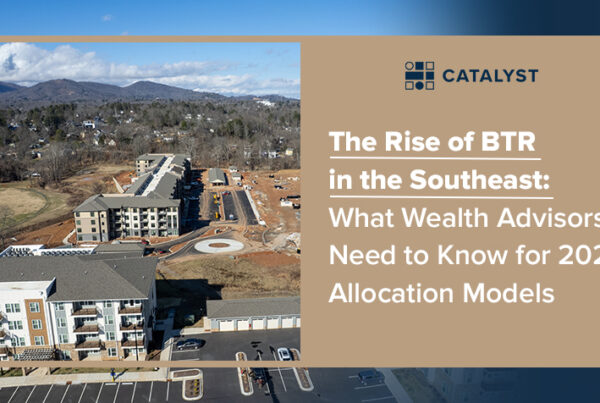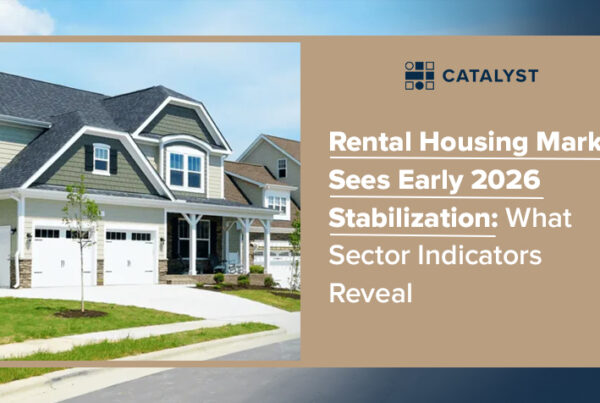November 11, 2025 | 4 min read
New Legislation Allowing 401(k)s to Be Allocated to Alternative Investments
Introduction: A Historic Shift in Retirement Investing
In August 2025, the White House issued a landmark executive order titled “Democratizing Access to Alternative Assets for 401(k) Investors.” This move has the potential to reshape how Americans invest for retirement by allowing access to alternative investments, including private real estate, through their 401(k) plans.
For decades, 401(k) plans have been limited mostly to mutual funds, ETFs, and publicly traded stocks and bonds. With this new directive, private equity, real estate developments, infrastructure projects, and even digital assets could become accessible to millions of retirement savers, assuming certain conditions are met.
What the New 401(k) Legislation Says
The executive order directs the Department of Labor (DOL) and Securities and Exchange Commission (SEC) to:
- Review existing fiduciary rules under ERISA
- Provide clearer guidance on including alternative assets in retirement plans
- Encourage plan sponsors to offer diversified investment options to participants
- Explore safe harbor protections for fiduciaries allocating to private market assetsThe order specifically includes real estate developments, private equity, venture capital, and infrastructure as potential alternative assets.
Source: White House Executive Order, August 2025
What This Means for Real Estate Investors
1. Real Estate Joins the 401(k) Ecosystem
Private real estate developments including multifamily, build-to-rent, commercial, and mixed-use projects are now in scope for inclusion in defined-contribution retirement accounts.
2. New Sources of Capital
Real estate developers and investment firms (like Catalyst) may soon have access to a new pool of retirement capital. This could accelerate projects, expand access, and offer retail investors institutional-grade exposure.
3. Tailored Fund Structures
Expect to see the rise of 401(k)-eligible real estate funds, featuring:
- Longer holding periods
- Quarterly liquidity
- Fee transparency
- Built-in compliance with DOL rules
Opportunities for Wealth Managers and Plan Sponsors
Wealth managers, plan fiduciaries, and retirement plan sponsors have a unique opportunity to offer broader diversification and enhanced return potential to their clients and employees.
Fiduciary Considerations:
- Thorough due diligence on alternative asset managers
- Ensuring liquidity and valuation transparency
- Clear disclosures to participants
- Incorporating alternatives into target-date funds or managed accounts
Real Estate's Role in the Modern 401(k) Strategy
Why It Fits:
- Inflation protection through tangible assets
- Stable cash flow from rental income
- Capital appreciation over time
- Diversification from equity and bond market volatility
Why the Southeast Matters:
Investors are especially focused on Southeast real estate, including markets like Charlotte, Raleigh, and Nashville, where population growth and job migration are fueling long-term demand.
Firms like Catalyst with over $1B in real estate development across the Southeast are well-positioned to provide compliant, institutionally managed investment options as this market matures.
Challenges Ahead
While the potential is vast, implementation will require careful consideration of:
- Valuation practices for illiquid assets
- Redemption rights and participant liquidity
- Legal and regulatory oversight
- Education for both investors and sponsors
This is not a “flip-the-switch” change plan; sponsors will need guidance, guardrails, and education to confidently add alternatives into retirement menus.
Real estate is no longer just for institutions; it's coming to 401(k)s.
If you're a fiduciary, plan sponsor, or investor interested in including real estate in your retirement strategy, Catalyst is ready to help.
Contact Catalyst to explore future-ready private real estate investment opportunities structured for retirement plans.
FAQs
Can I invest in real estate through my 401(k)?
Yes — under the new 2025 executive order, 401(k) plans may soon allow allocations to real estate and other private market assets, if structured properly.
What are the benefits of real estate in retirement portfolios?
Real estate offers long-term appreciation, consistent income, and inflation protection — making it a powerful tool for retirement wealth preservation.
Is it risky to add alternatives to 401(k) plans?
Alternative assets carry different risks (like illiquidity), but with proper due diligence, education, and safeguards, they can complement traditional investments.
When will this new rule take effect?
Agencies have up to 180 days to propose rule changes, with implementation likely beginning in late 2025 into 2026.
Join Us
Subscribe to our newsletter.


